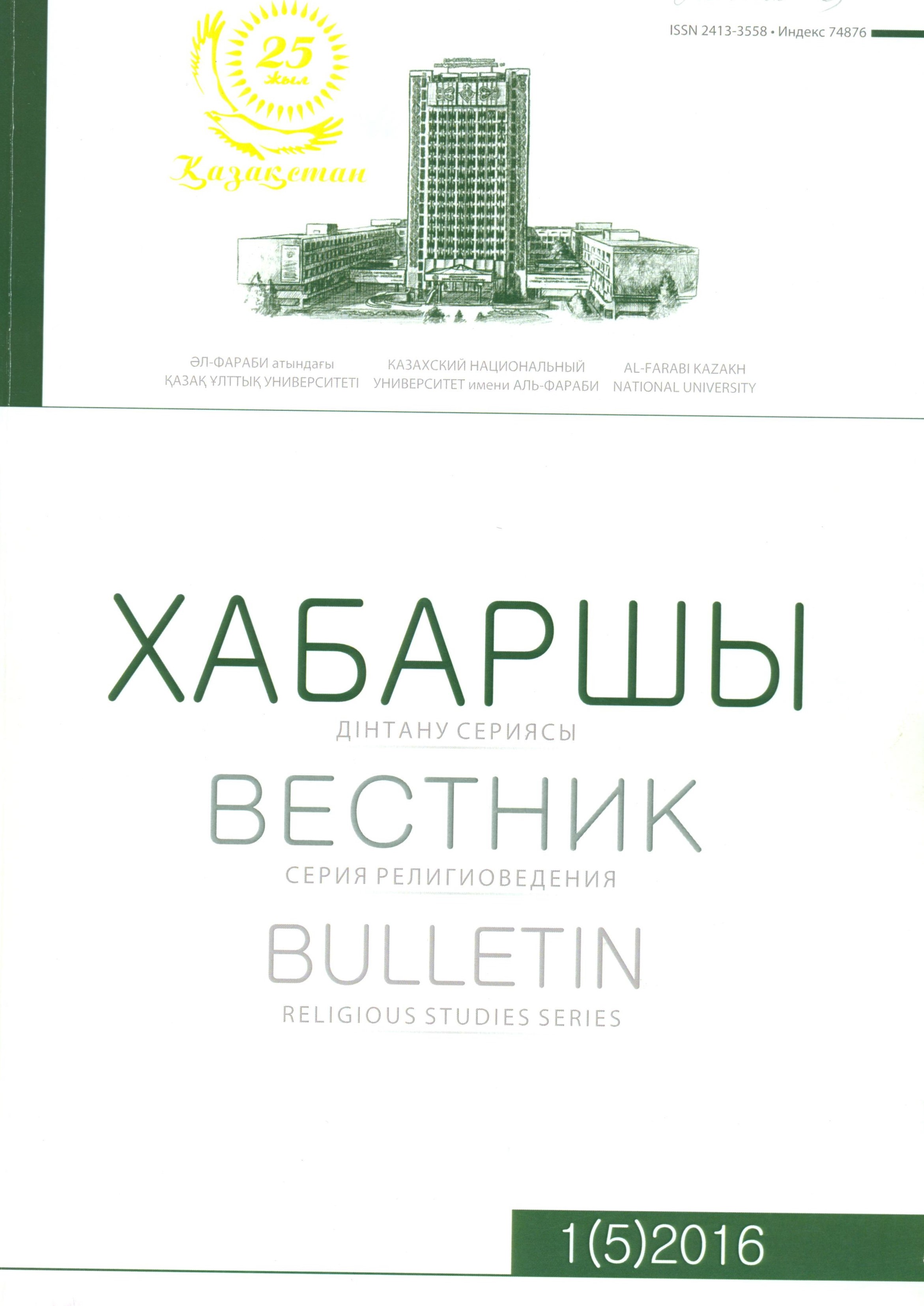Mu'tazila views on fate and predestinayion problems
DOI:
https://doi.org/10.26577/EJRS-2016-1-170Abstract
Mutazila representatives of the first major trends in Islamic religious and rational philosophy (Kalam) and freedom of expression. Rationalistic doctrine mutazila appeared in the VIII century among the scientists and theologians of Basra. It was formed under the influence of Greek philosophy and was widely spread among educated Muslim scholars in the cities of the Caliphate, especially in Iraq and Iran. Defending the thesis about the justice of Allah, mutazila rejected the doctrine of complete predestination and defended the thesis on the freedom of human thought and will to commit good and bad deeds. They believed that only divine justice presupposes free will and God's ability to create only "the best", and hence the impossibility of violating them installed from everlasting order of things. This article considers the problem of predestination in mutazila teaching. In Arabic "Kadar" and "qudrat" comes from the same roots. But mutazila considering them as two opposite concept.
References
2 Oner Necati. İnsan Hürriyeti. – Ankara, 1995.
3 Watt W. Montgomery. Hür irade ve kader. – İstanbul, 1996.
4 Akbulut, Ahmet. Sahabe Devri Siyasi Hadiselerinin Kelami Problemlere Etkileri. - İstanbul 1992.
5 Байтенова Н.Ж. Исламдағы секталар мен бағыттар. – Алматы, 2013.
6 Али-заде А. А. Мутазилиты // Исламский энциклопедический словарь. - М.: Ансар, 2007.













